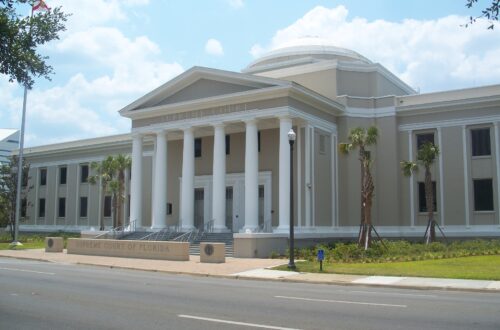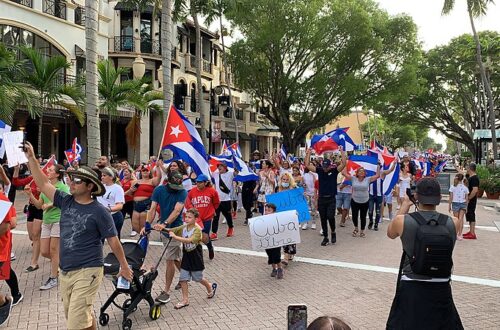Florida’s Supreme Court will hear a new round of oral arguments about whether a 2017 law directly violates the constitutional amendment that legalized the use of medical marijuana.
In the 2016 general election, Florida voters approved Amendment 2, which legalized marijuana for medical uses. Besides legalizing the drug, Amendment 2 also required the Florida Department of Health to register and regulate marijuana production centers.
About a year after Amendment 2 passed, Florida’s legislature passed SB8A, which requires medical marijuana treatment centers to have a vertical integration. This means that the same company would have to grow, process and sell the drug.
In the lawsuit, the plaintiff, a Tampa-based medical marijuana company called Florigrown, alleges that the 2017 law directly violates the constitutional amendment. Amendment 2 allowed medical marijuana companies to have separate licenses for growing, processing and selling.
Florida’s Department of Health denied Florigrown the license to distribute medical marijuana as there was no vertical integration model.
Florigrown’s lawsuit against the regulation was successful in the lower courts. Lawyers representing Florida’s Department of Health and Gov. Ron DeSantis (R-Fla.) appealed the decision from Leon County Circuit Judge Charles Dodson, who found that the 2017 law did violate the constitutional amendment.
The Florida Supreme Court agreed to take the case and heard two rounds of oral arguments in May and October.
Lawyers representing Florigrown argued that the 2017 law directly limits the number of companies who have the license to sell and distribute medical marijuana in Florida.
“This is everything but a free market. It has created a monopoly,” said Katherine Giddings, one of the lawyers representing Florigrown.
“There’s something wrong with a system that keeps competition out, products scarce and prices outrageously high, which is harming Florida’s critically ill and terminally ill patients from getting medical marijuana at reasonable prices,” Giddings said.
Since Amendment 2 passed in 2016, 22 grower’s licenses have been approved; the Florida Department of Health still has 11 available licenses for business use.
Joe Jaqcuot, the lawyer representing the Florida Department of Health, argued that “[n]othing in the amendment prescribes a horizontal market model, nor does the amendment elbow out the legislature’s vertical integration.”
The Florida Supreme Court taking another look at this case is a rare move. The court focused the second round of oral arguments on whether the statute mandating vertical integration associates itself with an unconstitutional “special law.” Florida’s Constitution bars “special laws,” many of which are intended to benefit specific business interests.
The Florida Supreme Court will make a decision this year after hearing two extensive rounds of oral arguments. Any decision is going to have clear implications on the thousands of patients who use medical marijuana.
According to the Florida Department of Health, over 450,000 patients use medical marijuana in Florida as of Jan. 22.
The number of patients has grown exponentially over the years – and so have the sales.
Florida’s medical marijuana sales were estimated to reach $628 million in 2018. Market evidence projects that Florida’s medical marijuana industry will grow 6% and be worth $1.3 billion by 2024.
The rapid growth of the industry can have the potential for many businesses to compete in the market or to limit the number of businesses to only those who can handle all aspects of production and distribution.
Any decision from the Florida Supreme Court will likely chart the course for the medical marijuana industry in Florida for decades to come.
Featured image: Marijuana plant used for medical use. Unmodified photo by Scott Beale used under a Creative Commons License. (https://bit.ly/36tcPf9)
Check out other recent articles from the Florida Political Review here.





